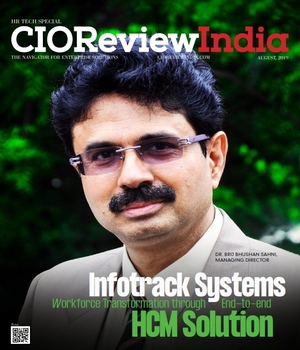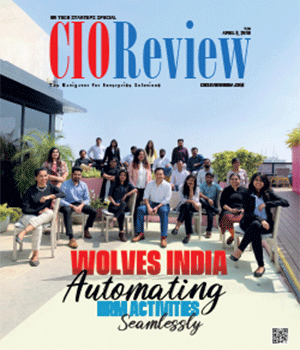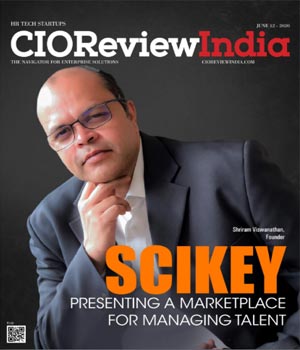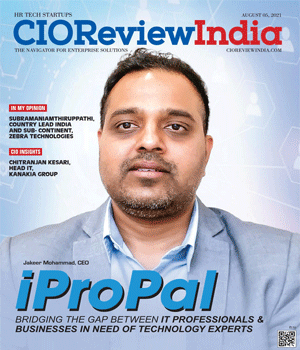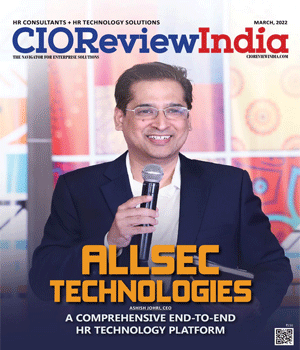
Digitalization in HR Operations
Jaishankar Balan, Head, Human Resources at Bharti AXA Life Insurance | Tuesday, 12 April 2022, 06:14 IST

We've all heard the term digitalization while living in this ultra-fast digital world. Businesses, the economy, and society as a whole have been shifting towards digital over the years. However, the onset of the pandemic expedited this digital transformation. As businesses shifted to a work-from-home approach, tapping into HR tech to ensure seamless communication and optimise efficiency became part of every business’ strategy for success. It has now become a need, and it is affecting every aspect of human life. The all-digital world is changing the way we live, work, organise and conduct business. HR can assist executives and staff in adopting a digital mindset, which is a digital approach to managing, coordinating, and leading change. By reinventing HR processes, systems, and the HR organisation through new digital platforms, apps, and ways of delivering HR services, HR has the opportunity to improve the overall employee experience. Digital transformation budgets are expected to rise by 25% in the coming year, according to a Deloitte report. This poses the second component of the digital HR age we live in - how to rethink HR and the employee experience in a digital environment.
Many things can move abruptly as a result of changing economic situations or naturally occurring crises, such as the current coronavirus outbreak. Working from home and new forms of cooperation, as well as new IT applications, platforms, and other digitalization challenges, are becoming commonplace in companies and HR departments. While ad hoc solutions are sometimes required because things must happen rapidly in order for activities to continue uninterrupted, in the long run, digital technology can even support fundamental changes in supply chain strategy and enhance resilience.
- The changing trend in HR Discipline
The HR discipline has changed dramatically in the previous five years. We covered HR's race to the cloud three years ago, when firms hurried to replace legacy talent systems with integrated HR platforms. We described HR as a makeover function two years ago, with organizations focusing on reskilling HR specialists, integrating the organization, and applying analytics. HR is shifting again this year, focusing on people, work, and platforms, as digital management techniques and agile organization design become key to business thinking. The resulting set of HR practices is dubbed digital HR.
- Recognizing and maximizing the potential of e-recruitment
Millennials, the first generation of digital natives, now account for the majority of the workforce. They want their employers to provide them with cutting-edge technology, such as HR software, to keep track of their time and records. To attract competent employees, businesses must provide technologies that allow employees to work where and how they choose. Today's HR managers are multichannel employees with diversified and cross-media skills. Recognizing possibilities, avoiding risks, comprehending new technologies, and adopting them in a focused manner are all part of digital transformation in recruiting.
- Evolving roles of HR professionals
While none of HR's previous roles has vanished, the emphasis on HR departments today is to rewrite the rules by revamping talent strategies, from recruitment to leadership to performance management; experimenting with digital tools; and creating a compelling employee experience. All of this must be done while focusing on reorganizing the company around teams, applying analytics and organizational network analysis, and promoting a global focus on diversity, culture, learning, and careers.
Real-time measurements of engagement, recruiting, turnover, and other parameters are now monitored by companies to enable business leaders to make faster decisions. Companies have started to deploy AI tools to provide executives with regular pulses on how their teams are doing, allowing them to see tendencies that can stymie performance or retention and urging them to address them proactively through coaching, recognition, or community development.
The goal of digital transformation is to build a flexible organization that can adapt as technology advances. As enterprises struggle to catch up, technology will always be ahead of the curve. It's impossible to avoid the inevitability of every company in the world digitizing its HR services and processes. As a result, it's best to join the trend sooner rather than later - especially in today's competitive job market, when one needs every advantage they can get. One of the reasons why digital transformation efforts fail is a lack of agility. Connectivity, real-time operations, platforms, automation, and mobile-first are all priorities in HR's digital transformation. This is a game-changing opportunity for many businesses, both in HR and across the board. One component of the greater digital HR challenge is to address the question of how can HR play a role in building the overall digital enterprise strategy, organization, and culture. This journey to digital operations begins with a compelling vision that inspires the business to take action. An organization must establish an integrated portfolio of use cases that targets the highest-value possibilities in order to accomplish its strategy.
CIO Viewpoint
Is Business Intelligence (BI) using Analytics...
By Lalit Popli, Head of Information Technology, ICICI Prudential AMC
How Disruptions in Internet of Things to Impact...
By Dalveer Singh, Head IT, Sentiss Pharma
HR Tech: It is Not Only About HR
By Babu Thiagarajan, Head - Technology, Fidelity International, India
CXO Insights
Digitalization in HR Operations
By Jaishankar Balan, Head, Human Resources at Bharti AXA Life Insurance
People Analytics: Critical to driving Business...
By Manan Jain, Lead- HR People Partner & Experience, India, YASH Technologies
Components Of Strategic Management Model


